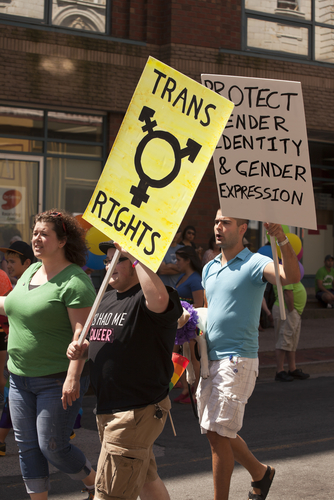Beginning with President Trump’s Executive Order (EO) 14168, Defending Women From Gender Ideology Extremism and Restoring Biological Truth To The Federal Government, the Trump administration has made clear it will recognize only two biological sexes and has been erasing policies, practices, and procedures that acknowledge or support gender identity or transgender individuals.
EEOC Position on Trans Bias
The Equal Employment Opportunity Commission (EEOC) Acting Chair Andrea Lucas immediately responded to the EO by issuing her press release, Removing Gender Ideology and Restoring the EEOC’s Role of Protecting Women in the Workplace, in which she stated that she removed the agency’s pronoun app, ended the use of the X gender marker for intakes, directed the removal of the gender-neutral “Mx,” and removed materials she claimed promoted “gender ideology” on the commission’s internal and external websites. She withdrew the EEOC from litigation involving discrimination against trans individuals and cut funding to state and local agencies handling trans discrimination cases for EEOC.
The commission initially stalled processing of trans charges but now is apparently limiting transgender bias focus to allegations involving hiring, firing, or promotion. The EEOC will have a quorum once Brittany Panuccio is confirmed. At that point Lucas will revise the EEOC’s harassment guidance to eliminate reference to harassment based on trans status such as “misgendering” and requiring employers to allow use of bathrooms or changing rooms based on current gender to comply with a recent court decision.
Recent 11th Circuit Decision Seems to Limit Bostock’s Protections
On September 10, 2025, the full panel of judges from the U.S. 11th Circuit Court of Appeals reversed a transgender Georgia deputy sheriff’s win on summary judgment (dismissal without a trial) that had held the failure of the county’s insurance policy to cover “sex change” surgery violated Title VII of the Civil Rights Act of 1964. The court reversing a three-judge panel held that the exclusion did not constitute sex discrimination under Title VII because the exclusion was applied uniformly regardless of the person’s sex or gender identity.
The court relied on the recent Supreme Court decision in United States v. Skrmetti despite the fact that case focused on the Fourteenth Amendment’s Equal Protection Clause. The court said just as the challenged Tennessee law in Skrmetti did not discriminate based on a person’s transgender status because of uniform application, the Georgia county’s policy did not discriminate based on gender identity or “biological sex.”
Other Decisions Affecting Trans Protections
The 9th Circuit seemed dubious about Alaska Airlines’ actions during oral argument in Brown v. Alaska Airlines. The case was filed by Christian flight attendants who alleged they were fired for opposing the airline’s support for the Equality Act, which would expand Title VII to cover gender identity and sexual orientation in internal company website. The flight attendants claim they were fired for their religious beliefs. Alaska Airlines argued the online comments violated its antiharassment and discrimination policies.
The 7th Circuit in Kluge v. Brownsburg Community School Corporation reinstated a religious bias lawsuit from a Christian teacher fired for refusing to refer to transgender students by their preferred names. The opinion overturned summary judgment for the school saying that the fact that some transgender students were upset by the way Kluge referred to them did not create the kind of definitive safety issue that imposed an undue hardship for the school district.
Finally, FreeState Justice has filed a lawsuit in Maryland federal district court arguing the shift by the EEOC on transgender discrimination violates the Constitution’s Equal Protection Clause because they deprive transgender workers of protections and processes afforded to cisgender employees as well as the Supreme Court’s decision in Bostock.
Takeaways for Employers
While the new approach to religious accommodations and expression is expanding the rights of religious workers in the workplace, these decisions indicate that the rights of transgender workers in the workforce are being limited by the Trump administration, the EEOC, and the courts.




